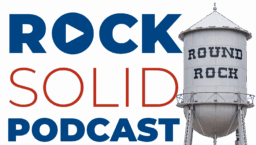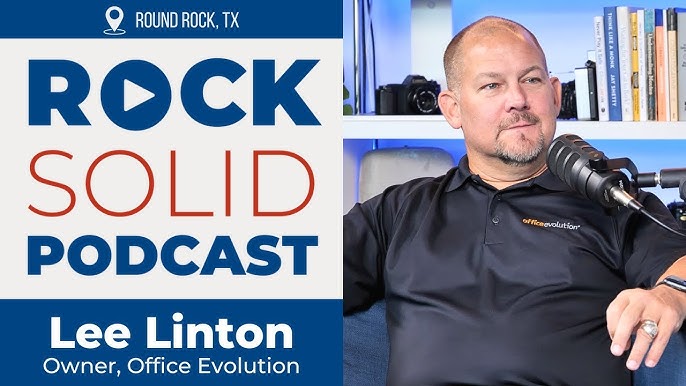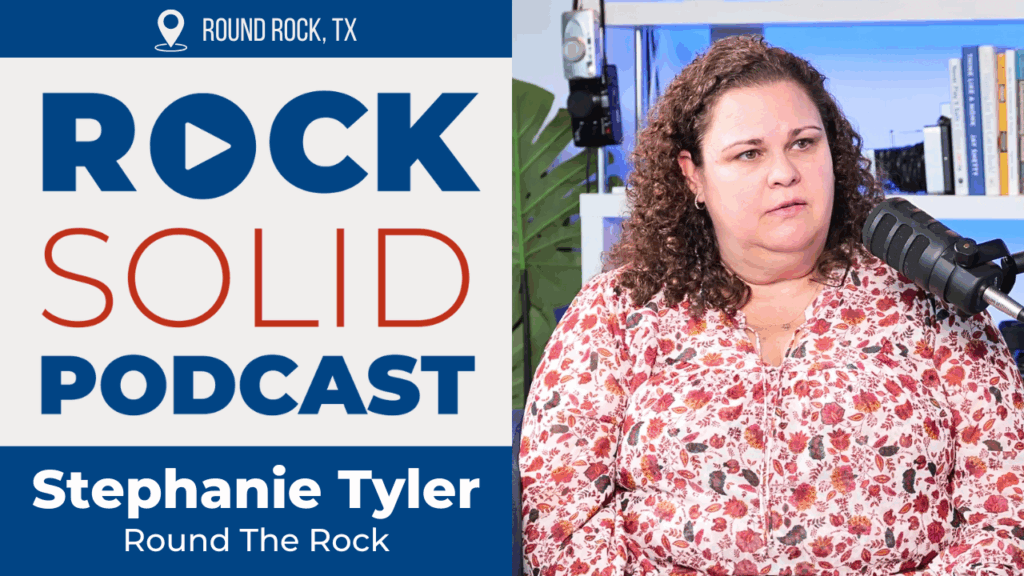What if midlife wasn’t a health crisis. What if it was a turning point?
Karen Cerezo, a mid-life health coach and author of Navigating Menopause, is doing more than helping women work out. She’s building a framework for thriving in midlife. Her expertise in menopause and women’s health isn’t a niche. It’s a response to a market that has been overlooked and underserved for decades.
Karen started as a general fitness coach. But as more clients over 40 came to her with problems their doctors couldn’t solve, she went deeper. She studied nutrition, menopause, and mental health. Now, she helps women through one of the most biologically disruptive stages of life. She brings knowledge, empathy, and results.
Her clients are juggling careers, aging parents, and adult children. They’re also navigating weight gain, sleep disruption, and brain fog. Karen gets that. She’s lived through it, too. That experience shaped how she coaches. With community, not competition. With collaboration, not comparison.
And it works.
Her private fitness groups for women 40 to 75 aren’t about six-packs or bikini bodies. They’re about consistency, movement, and strength. These women show up not to impress each other, but to hold each other up. They walk together. Train together. Talk about things other people avoid. Like caregiving stress and fear of becoming a burden.
The results speak for themselves. Lower A1C levels. Fewer medications. Better sleep. More confidence. Women feel stronger in every way that matters.
Karen also builds partnerships with local health pros. She helps women access pelvic floor therapy, nutrition coaching, and even proper bra fittings. She calls out the gaps in her community. Not just lack of access, but the cultural shame around eating well and aging out loud.
She doesn’t just talk wellness. She lives it. She gets her clients outside on trails and into parks. She pushes local women to use what Round Rock has to offer. And to ask for more.
For entrepreneurs in the wellness space, Karen’s playbook is clear.
Serve a niche no one else is focused on. Solve real problems, not just cosmetic ones. Collaborate with other experts. Keep learning. Always.
She’s also a published author. Her health journal Navigating Menopause helps women track symptoms and prepare for doctor visits with confidence. And she didn’t forget the partners. She’s building tools to help men better understand what their wives are going through.
Karen isn’t a trend. She’s a shift. A businesswoman using data, story, and empathy to serve a community that deserves better.
Key Takeaways:
• Fitness after 40 isn’t about aesthetics. It’s about function and independence.
• Community support is a health strategy.
• Tailored, evidence-based coaching outperforms one-size-fits-all workouts.
• Entrepreneurs grow by solving ignored problems. Not by chasing hype.
• Educating patients builds better healthcare interactions. And outcomes.
Karen Cerezo is proving that wellness isn’t one-size-fits-all. It’s local. It’s personal. And when done right, it changes everything.
Transcript:
Bryan Eisenberg:
Hi everybody, it’s Bryan Eisenberg and I’m here with Karen Cerezo. Karen is a fitness coach—but really, you’re more than that. Let’s start with what you actually do.
Karen Cerezo:
Thank you for having me here! I feel like I wear a lot of hats. I started out as a health coach, which led me into fitness. But I realized: people were showing up for workouts, but what were they doing during the other 23 hours of the day?
So I got certified in nutrition. And as I went through my own health journey and hit 46, I really focused on women’s health. That led me to become a menopause expert. It’s been a journey from fitness to a truly holistic approach.
Bryan:
You work with a lot of women who are balancing careers, family, aging—why do you think so many get overwhelmed in midlife?
Karen:
Middle age is heavy—especially for women. We’re launching adult children while caring for aging parents. That “sandwich generation” stress is real. Plus, many are planning retirement, navigating physical and emotional changes, and asking, “What’s next?”
Hormonal shifts affect everything—our energy, moods, even our memory. It’s a lot coming at us all at once.
Bryan:
One area I’ve seen affect my own life—and I don’t think people talk about enough—is the social aspect of aging. Mel Robbins talks about how easy it is to make friends in your twenties… but later in life? Not so much. How does that impact health?
Karen:
It’s huge. We saw it during COVID—those early weeks of isolation felt fine, but then we started craving connection. People were doing Zoom trivia nights just to feel together.
When our kids leave school or sports, we often lose those community ties. We drift from church groups or work friends as our lives shift. That loss of connection can seriously impact mental and physical health.
What sets my fitness community apart is the support. There’s no judgment, no competition. Just kindness. These women hold each other accountable, check in when someone’s sick or missing, and celebrate each other’s wins. It’s more than fitness—it’s sisterhood.
Bryan:
What does that community actually look like?
Karen:
Women ages 40 to 75. It’s diverse in every way—background, life stage, experience. And we wouldn’t have crossed paths if not for this group.
Some come for accountability, others for support. Yes, there are lots of great trainers out there—but here, the community is the glue. I always say, I could leave town and my ladies would still run everything because they care about each other that much.
Bryan:
As someone who runs a home care agency with my wife, I think a lot about adult children watching their parents lose independence. That hits hard. What do you see people go through emotionally when they realize they’re aging too?
Karen:
There’s fear—fear of becoming a burden, financial stress, uncertainty. I had a personal scare last year in my family. It gave me a whole new level of empathy for what my clients experience.
But that fear becomes fuel for many women. They say, “I don’t want this for my kids. I want to shower by myself. I want to play with my grandkids.”
That’s their why. And when it’s cold and early and they don’t want to work out, they remember it’s not about jeans anymore—it’s about quality of life.
Bryan:
Exactly. I talk about the stories we tell ourselves in my new manuscript. Saying, “I want to feel healthy” is one thing. But asking, “What happens if I don’t?”—that hits deeper. And for many, it’s personal now.
Karen:
Absolutely. When that scare happened in my life, it affected everything—our finances, our energy, our time. I thought I might lose someone I love. I don’t want to be a burden to my kids or grandkids.
And I see my clients living out that intention. I have women coming off medication. One client recently brought down her A1C, and her doctor is taking her off diabetes meds. That’s a win.
Another client told me she lifted her luggage onto the plane—carried her grandson, groceries, and didn’t need help. That’s real independence.
Bryan:
Yeah, I might need you to coach my 19-year-old. He thinks I should train like him—but I’m just trying not to get injured.
Karen:
Same! My son is 22. I tell him: I’m not working out like you. My recovery takes longer. I’m not here to prove anything. I’m here to bless my body, take care of my mind, and feel alive.
We talk a lot in health coaching about boundaries—about designing the second half of life with intention. Most people don’t want to live the way they used to. They want different—and that’s okay.
Bryan:
How do people find your tribe?
Karen:
I’ve built it through community partnerships—meal prep companies, Baylor Scott & White for heart health talks, local boutiques for bra fittings, wellness centers, pelvic floor specialists… I bring in experts so women know what’s available in Round Rock.
And the vibe is everything. Whether it’s your first workout in ten years or you’re just tired of working out alone at home, we make it welcoming, not competitive. Motivation over comparison.
Bryan:
Someone told me Round Rock isn’t as fitness-conscious as Austin. Are the resources here?
Karen:
We’ve got incredible wellness businesses—strength training, balance, flexibility—but we lack healthy food options. The perception around healthy eating still needs to shift. People think eating clean is weird. That mindset needs work.
Bryan:
Yeah, I’ve noticed that too. The same five restaurants everywhere. But when it comes to fitness and support, Round Rock is thriving.
Karen:
Totally. One hidden gem I wish more people took advantage of? Our parks and trails. They’re amazing—and often empty! Outdoor workouts are a mental health boost. Walking chats with friends? Game changer.
Bryan:
I do that! Random park, random trail—just wander. You find cool stuff. Once we even stumbled on a hidden cemetery.
Karen:
Right? It’s beautiful here. Brunch is fun, but a walk with a friend hits different. It’s the perfect time of year to do it too—spring’s coming.
Bryan:
As we wrap up—any advice for entrepreneurs starting out, whether they’re 21 or 72?
Karen:
Keep learning. Things are always changing. And know there’s a space for you.
When I started, I was working at a gym and realized we were missing a huge group: women over 40 who didn’t want high-intensity every day. I built for them.
Find the gap. Fill it. And most importantly, get out there and meet people. Most don’t even know there’s a menopause expert in their own backyard.
Bryan:
Speaking of that—how can people find you?
Karen:
Instagram: @midlifehealthcoach
Website: midlifehealthcoach.com
Book: Navigating Menopause: A Health Journal (available on Amazon)
It helps women track symptoms and advocate for themselves in the doctor’s office—because too many are dismissed. The journal brings data to the conversation. And yes, I’ve even created resources for husbands to understand what their partners are going through.
Bryan:
Love that. Thank you, Karen. This was amazing.
Karen:
Thank you! I appreciate it.


